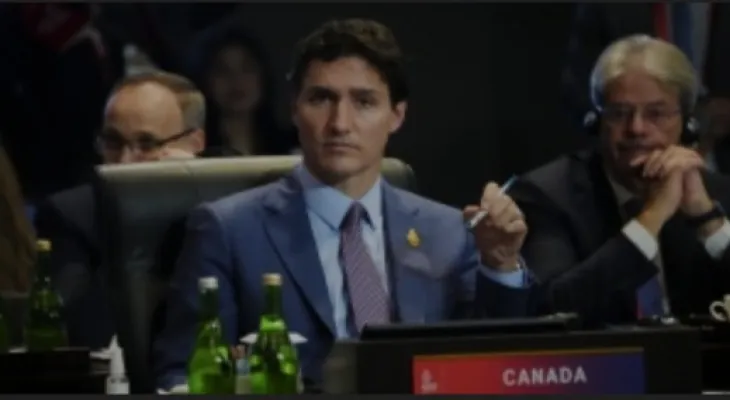Search here
Newspaper
Search here

Arab Canada News
News

Published: November 15, 2022
Prime Minister Justin Trudeau announced funding for developing countries to improve their infrastructure and manufacture COVID-19 vaccines, at the G20 summit where the geopolitical backdrop threatens efforts to support global economic systems.
At the G20 summit in Indonesia, Trudeau pledged on Monday to provide $750 million to Crown to finance infrastructure projects in Asia over three years, starting next March. It is also the largest part of the Indo-Pacific strategy announced by the Liberals so far, and part of the G20 initiative aimed at helping low- and middle-income countries achieve safer and more sustainable cities. Trudeau also said in prepared remarks for a closed event hosted by Indonesia, the United States, and the European Union: "This will strengthen our supply chains and create good jobs."
Additionally, the funding will be managed by FinDev Canada, which currently has a mandate to operate in sub-Saharan Africa, Latin America, and the Caribbean region. It will now also help finance projects in developing countries in Asia.
Trudeau told leaders that sovereign wealth funds can help foreign governments build schools and hospitals. "If we want to close the infrastructure gap, we need to continue finding ways to encourage more private sector investment," the Prime Minister's remarks said. "No amount of public money alone can solve this problem."
Furthermore, Trudeau also announced $80 million for global health systems, with most of the funding allocated to a World Bank project that helps countries prevent and respond to epidemics. The funding will also support projects that help developing countries manufacture COVID-19 mRNA vaccines.
However, geopolitics is likely to cast a shadow over the commitments made by leaders at the summit, as countries discuss how to respond to the Russian invasion of Ukraine and China's increasing assertiveness.
In the same context, Canada is among the strongest countries pressuring G20 leaders to hold Russia accountable for exacerbating inflation and global security through its war in Ukraine, but other countries have refrained from calling out Russia, attempting to maintain good relations with both the West and Moscow.
As the summit host, Indonesia urged countries to focus on finding common ground to ensure some consensus statement at the conclusion of the summit on Wednesday.
Meanwhile, the Prime Minister's office said Trudeau had to intervene at a closed G20 health forum on Tuesday after Russian Foreign Minister Sergey Lavrov alleged that U.S. biolabs were performing illicit activities in Ukraine. Trudeau's office says he told his peers the claims were "absolute nonsense" and that leaders should deal with facts.
Trudeau also spoke on Tuesday with Chinese President Xi Jinping, and his office said he raised concerns about Chinese interference in Canada, following allegations about actual police-like centers operating in Canada and China, reportedly interfering in the 2019 general election. The two leaders also discussed North Korea's missile launches, and the UN biodiversity summit hosted by China in Montreal next month. Cooper told reporters in Bali that Canada may follow a similar pattern Australia faced a decade ago when it was isolated by China but gradually found areas of agreement with Beijing while building stronger ties with other countries in Asia.
For its part, the Canadian Chamber of Commerce said the Liberals are taking a pragmatic approach to dealing with China, stating it will help inform businesses of the risks of operating in China and allow them to decide whether to do so. The group's CEO, Perrin Beatty, told reporters in Bali, "You need to work with China on issues like climate change, but we also have to recognize China as a strategic competitor, and they do not play by the same rules as everyone else." He added that Ottawa now needs to prioritize its trade in Asia.
Comments